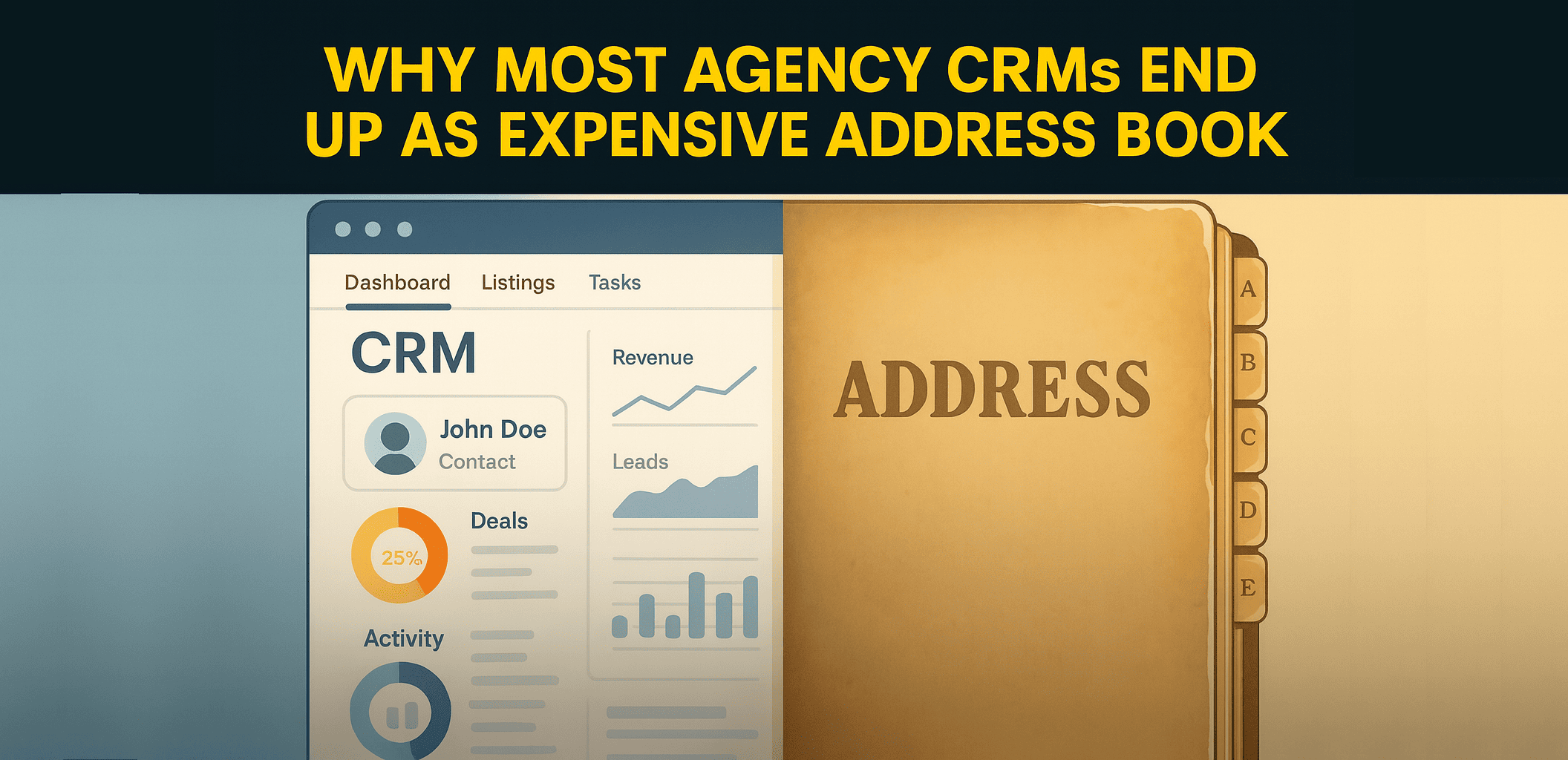Why Most Agency CRMs End Up as Expensive Address Books

Walk into almost any property agency and ask the team what their CRM is used for. The answer, nine times out of ten, is disappointing:
- Storing client phone numbers
- Tracking basic leads
- Logging a few notes about viewings
In other words, the CRM — which costs thousands of ringgit in subscriptions and setup — has become nothing more than a digital address book.
Why CRMs Fail in Real Estate Agencies
It’s not because the technology is weak. It’s because agencies never push the CRM beyond its shallowest function.
1. Sales Obsession, Not Process Discipline
Agency bosses love to talk about listings and closings. But they rarely enforce process discipline: tagging leads properly, updating deal stages, or closing loops with follow-up. Without discipline, data quality collapses — and once negotiators stop trusting the data, the CRM is dead.
2. REN Resistance
Most RENs don’t see the immediate benefit of using CRMs. They already have WhatsApp, Excel sheets, and notebooks. Unless the CRM actively helps them close deals faster, it feels like “extra work for the boss.”
3. No Integration with the Real Workflow
Most CRMs are generic. They don’t connect seamlessly with property ads, listing portals, client accounts, or commission systems. This creates duplication: RENs have to key in data twice, and bosses can’t see the full picture.
4. Bosses Buy for Image, Not Usage
Agencies buy CRMs to look “professional” or because another agency has one. But they don’t build a culture of adoption. A tool without usage is just shelfware.
The Expensive Address Book Syndrome
When adoption fails, here’s what happens:
- RENs keep working on WhatsApp, ignoring the CRM.
- Bosses only log in for reports (which are inaccurate anyway).
- Data is incomplete, messy, or outdated.
- The agency keeps paying subscription fees without extracting value.
The result? A “CRM” that costs RM1,000+ a month but adds less value than a free Google Sheet.
What a Real Estate CRM Should Do
A proper agency CRM must go beyond storing contacts. It should:
- Distribute Leads Fairly – Automatic assignment of incoming leads to RENs.
- Track Deal Pipelines – From first call to deposit to SPA, with clear visibility for principals.
- Enforce Compliance – Client account tracking, PDPA-safe data storage, AMLA red-flag alerts.
- Integrate with Ads & Listings – No double-keying; listings flow in and out seamlessly.
- Tie to Commissions – When a deal closes, the CRM links directly into payout calculations.
If your CRM can’t do these, you don’t have a system. You have an expensive phonebook.
How to Avoid the Address Book Trap
- Pick Industry-Specific Tools – General CRMs won’t cut it. Real estate has unique compliance and commission needs.
- Enforce Adoption from Day One – If RENs don’t use it, it fails. Training and daily usage checks are non-negotiable.
- Automate Workflows – The CRM should reduce workload, not add to it. Auto-reminders, lead routing, and reporting must be built-in.
- Link to Revenue, Not Vanity – If your CRM can’t show how much revenue was created, saved, or protected, it’s not worth the spend.
Final Word: Stop Paying for Fancy Phonebooks
CRMs don’t fail because of software. They fail because agencies treat them as storage instead of systems.
A CRM should be the backbone of your business — not a prettier version of Excel.











































































































